Math and Machine Learning Program Discussion
CMSA Room G10 CMSA, 20 Garden Street, Cambridge, MA, United StatesMath and Machine Learning Program Discussion
Math and Machine Learning Program Discussion
Math and Machine Learning Program Discussion
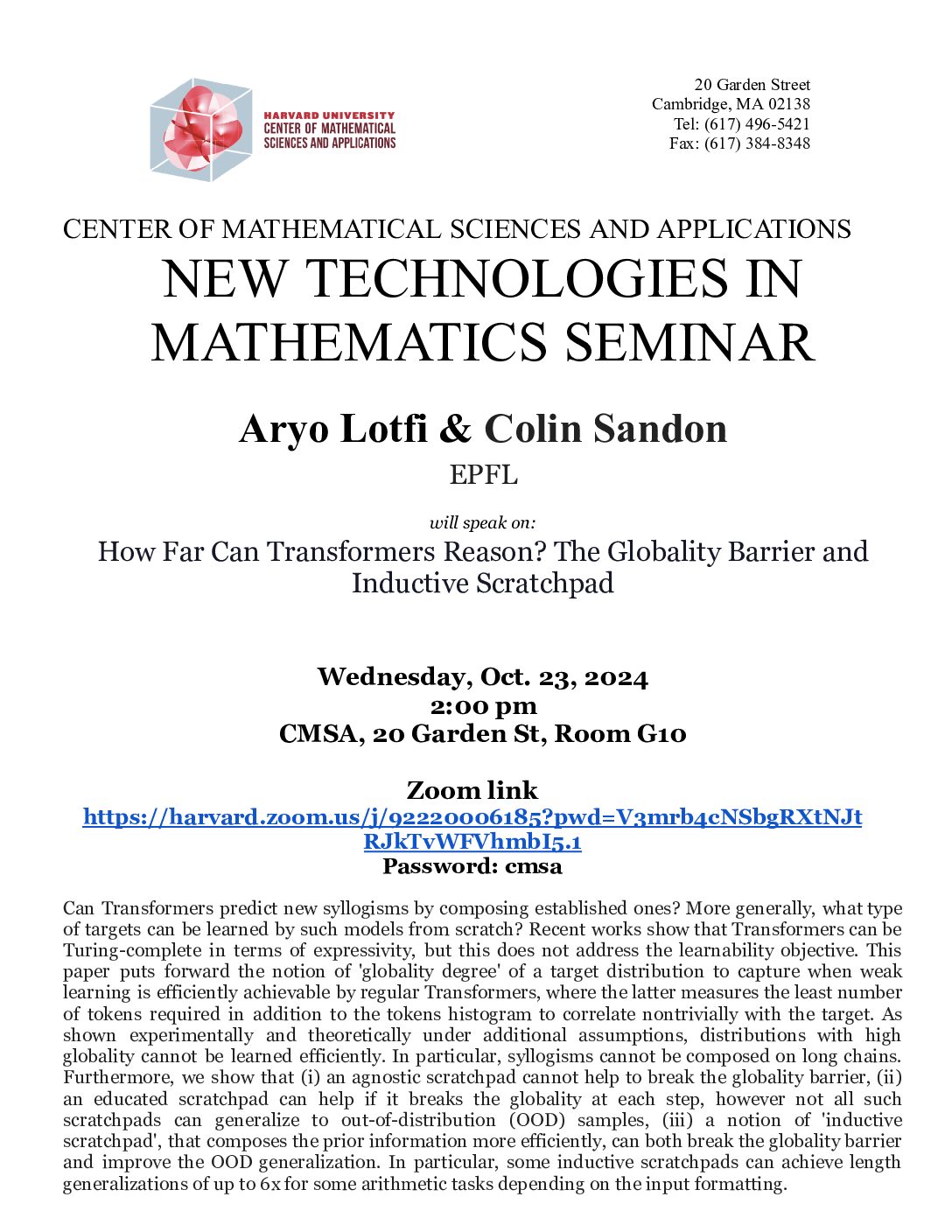
https://youtu.be/C6NDdnSaluU New Technologies in Mathematics Seminar Speaker: Aryo Lotfi (EPFL) Title: How Far Can Transformers Reason? The Globality Barrier and Inductive Scratchpad Abstract: Can Transformers predict new syllogisms by composing established ones? More generally, what type of targets can be learned by such models from scratch? Recent works show that Transformers can be Turing-complete in terms of […]
Math and Machine Learning Program Discussion
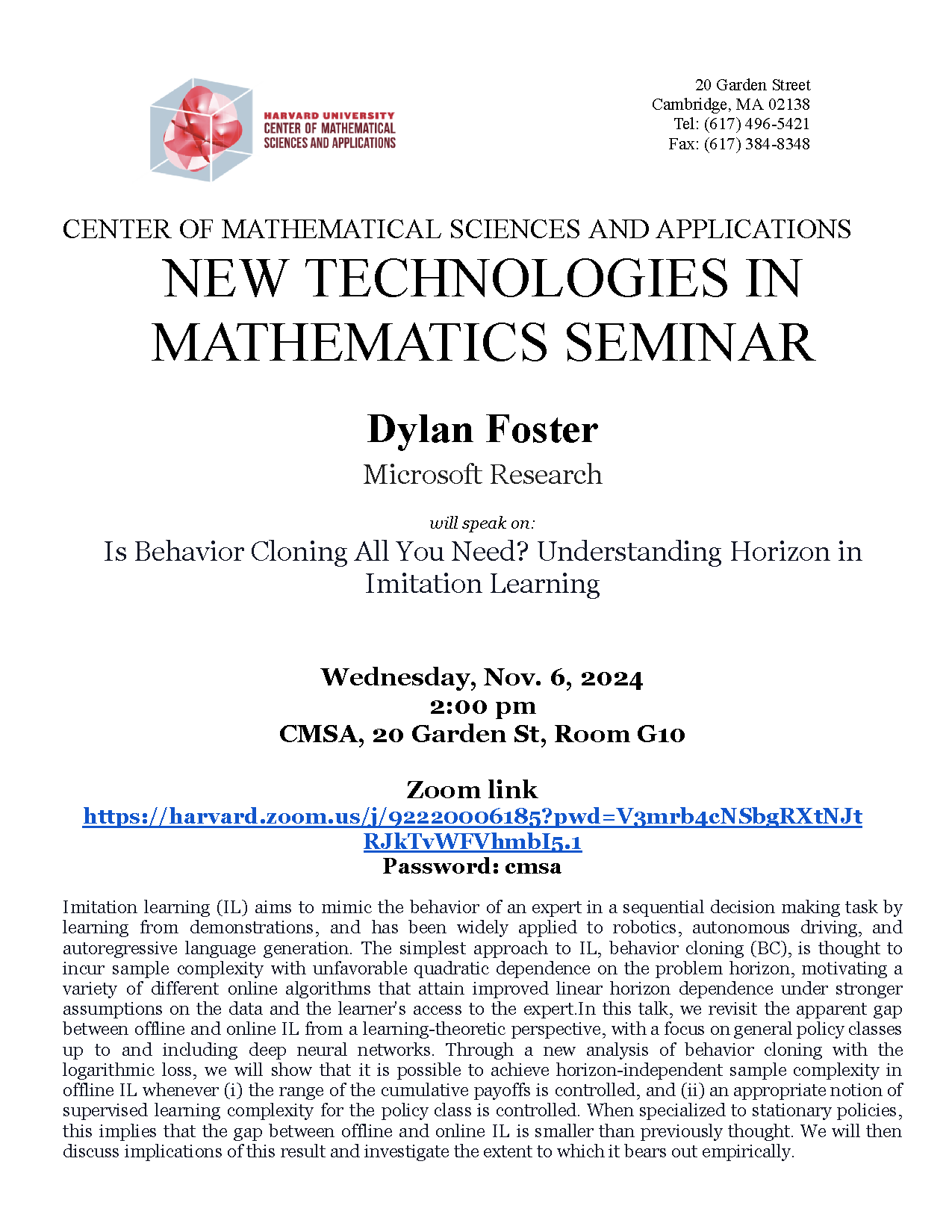
https://youtu.be/KOgh-FFDlvg New Technologies in Mathematics Seminar Speaker: Dylan Foster, Microsoft Research Title: Is Behavior Cloning All You Need? Understanding Horizon in Imitation Learning Abstract: Imitation learning (IL) aims to mimic the behavior of an expert in a sequential decision making task by learning from demonstrations, and has been widely applied to robotics, autonomous driving, and autoregressive language […]
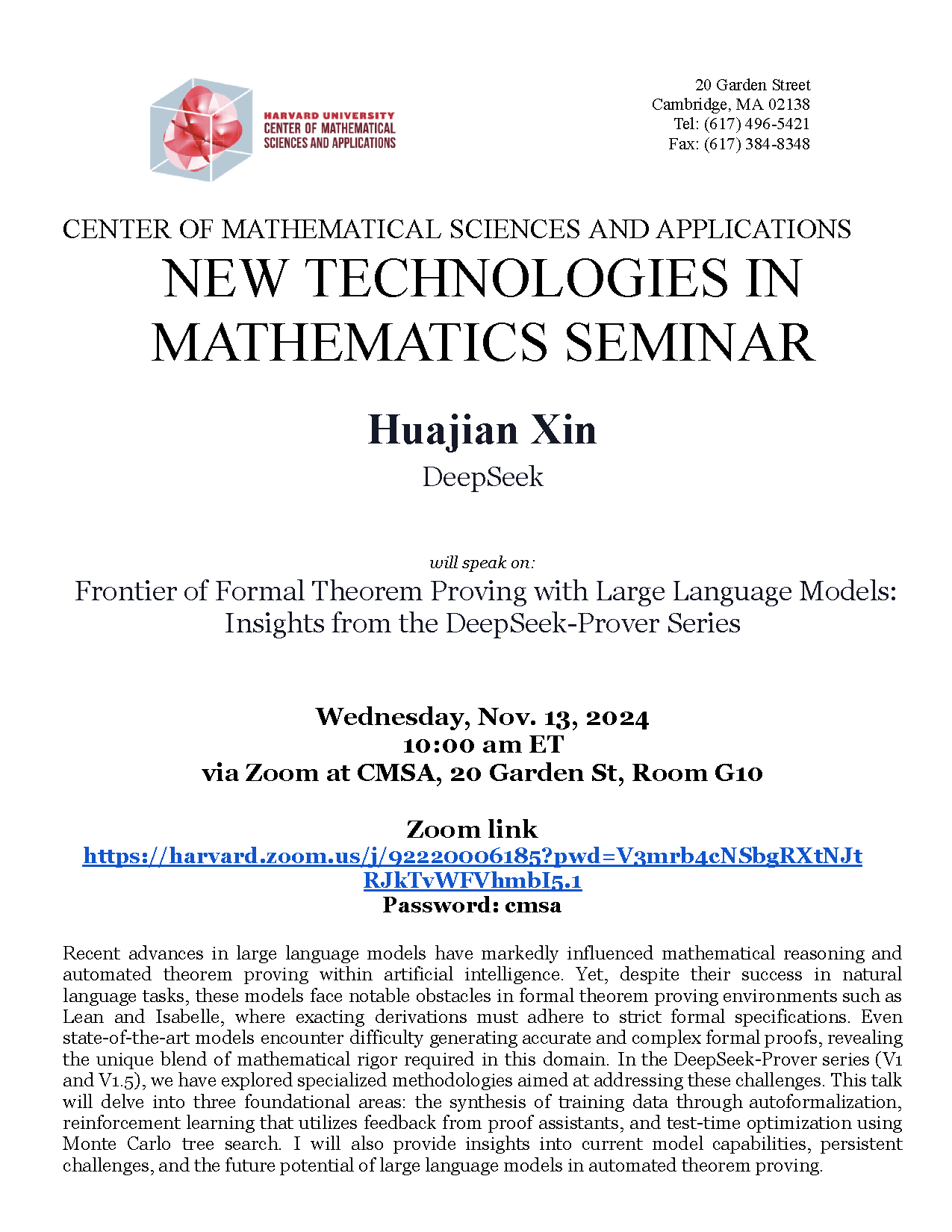
https://youtu.be/qC60ZgsIFvk New Technologies in Mathematics Seminar Speaker: Huajian Xin, DeepSeek Title: Frontier of Formal Theorem Proving with Large Language Models: Insights from the DeepSeek-Prover Series Abstract: Recent advances in large language models have markedly influenced mathematical reasoning and automated theorem proving within artificial intelligence. Yet, despite their success in natural language tasks, these models face notable obstacles […]

New Technologies in Mathematics Seminar Speaker: Gail Weiss, EPFL Title: Thinking Like Transformers - A Practical Session Abstract: With the help of the RASP programming language, we can better imagine how transformers---the powerful attention based sequence processing architecture---solve certain tasks. Some tasks, such as simply repeating or reversing an input sequence, have reasonably straightforward solutions, […]
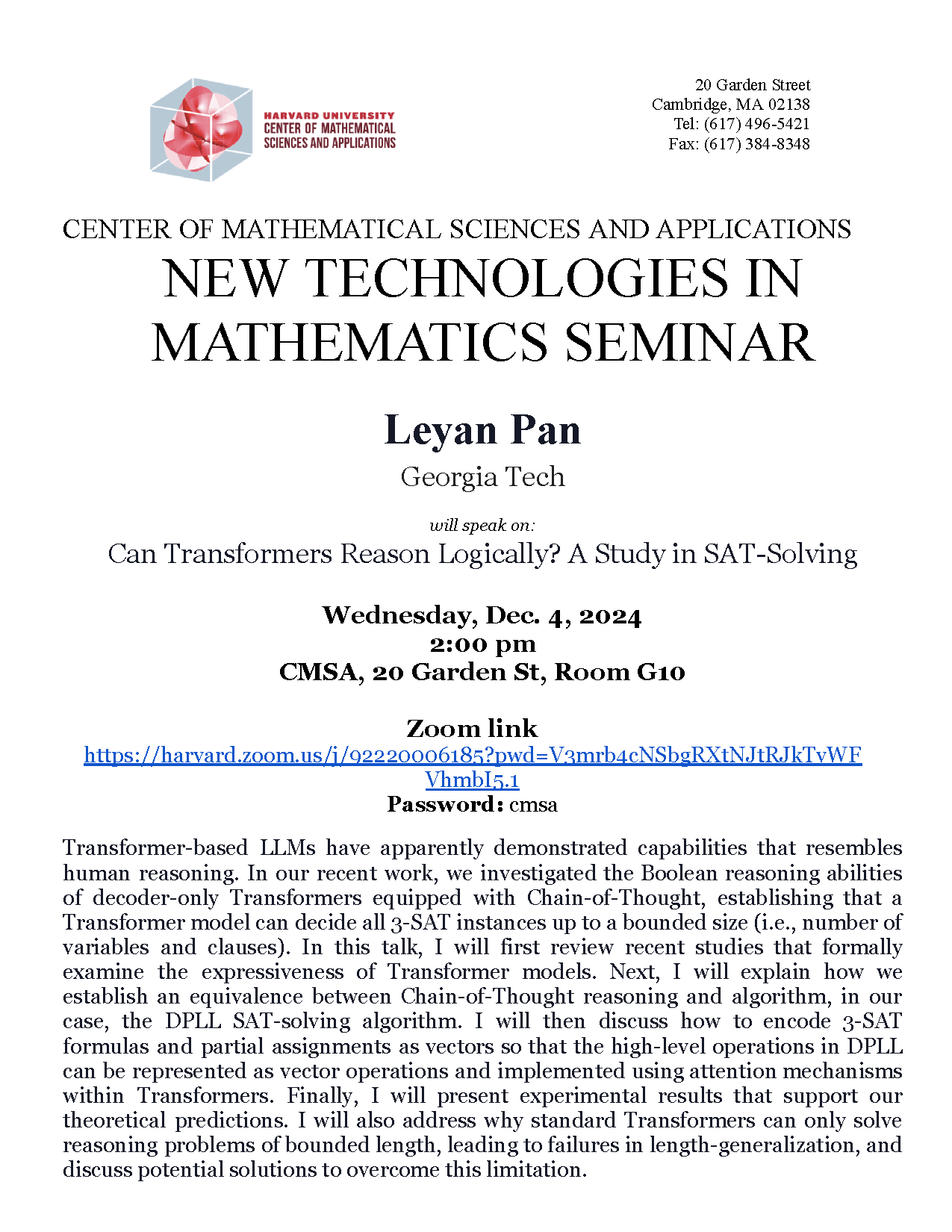
https://youtu.be/o7uac6DuzcQ New Technologies in Mathematics Seminar Speaker: Leyan Pan, Georgia Tech Title: Can Transformers Reason Logically? A Study in SAT-Solving Abstract: Transformer-based LLMs have apparently demonstrated capabilities that resembles human reasoning. In our recent work, we investigated the Boolean reasoning abilities of decoder-only Transformers equipped with Chain-of-Thought, establishing that a Transformer model can decide all […]
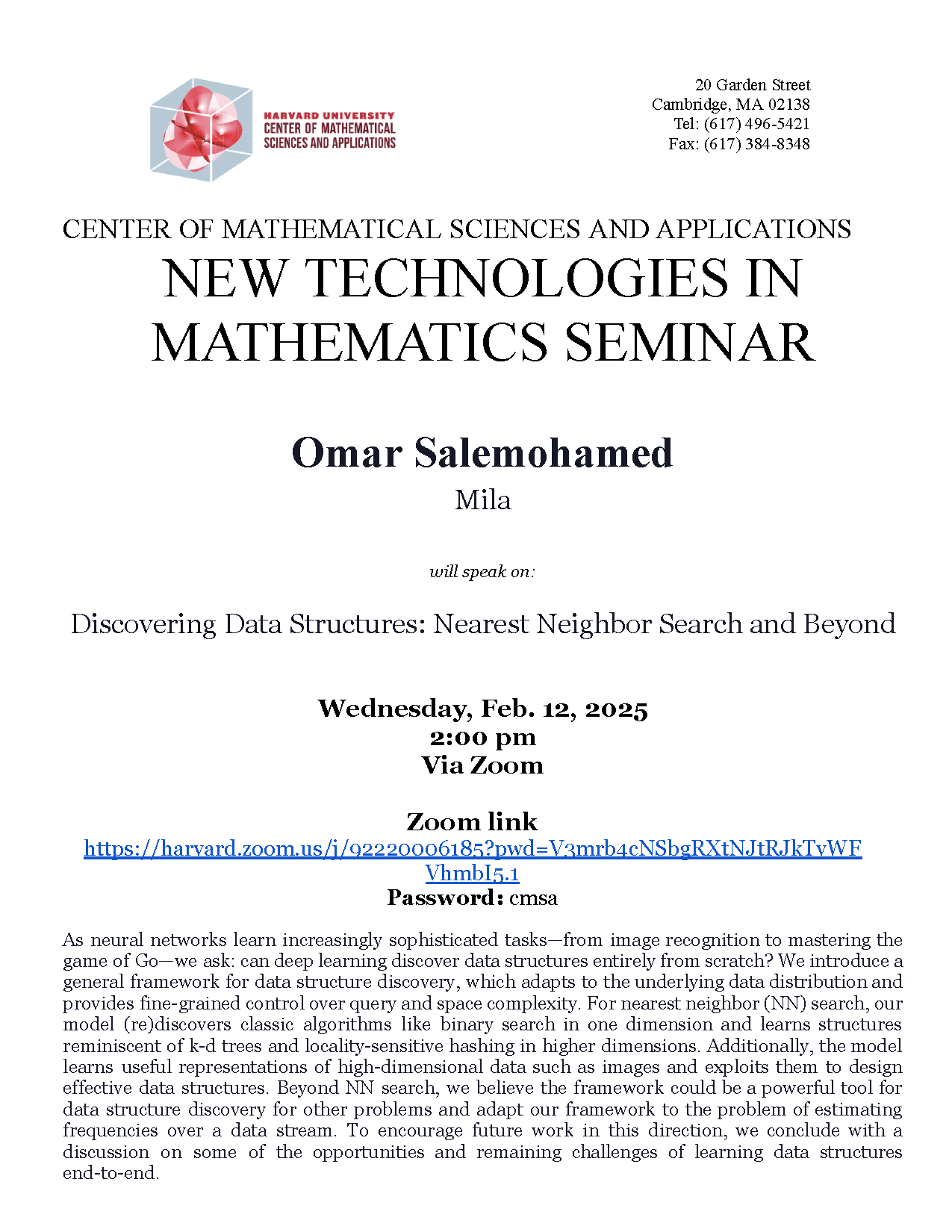
https://youtu.be/_BgheUBw_Lw New Technologies in Mathematics Seminar Speaker: Omar Salemohamed, Mila Title: Discovering Data Structures: Nearest Neighbor Search and Beyond Abstract: As neural networks learn increasingly sophisticated tasks—from image recognition to mastering the game of Go—we ask: can deep learning discover data structures entirely from scratch? We introduce a general framework for data structure discovery, which adapts to […]

https://youtu.be/XUp3IM66AQA New Technologies in Mathematics Seminar Speaker: Simon Frieder, Oxford Title: Datasets for Math: From AIMO Competitions to Math Copilots for Research Abstract: This talk begins with a brief exposition of the AI Mathematical Olympiad (AIMO) on Kaggle, now in its second iteration, outlining datasets and models available to contestants. Taking a broader perspective, I then […]

https://youtu.be/3gRquXqwtU8 New Technologies in Mathematics Seminar Speaker: Elli Heyes, Imperial College Title: Machine Learning G2 Geometry Abstract: Compact Ricci-flat Calabi-Yau and holonomy G2 manifolds appear in string and M-theory respectively as descriptions of the extra spatial dimensions that arise in the theories. Since 2017 machine-learning techniques have been applied extensively to study Calabi-Yau manifolds but until […]

https://youtu.be/2tmmafZxBIw New Technologies in Mathematics Seminar Speaker: Randy Davila, RelationalAI and Rice University Title: Discovery in Mathematics with Automated Conjecturing Abstract: Automated conjecturing is a form of artificial intelligence that applies heuristic-driven methods to mathematical discovery. Since the late 1980s, systems such as Fajtlowicz’s Graffiti, DeLaViña’s Graffiti.pc, and TxGraffiti have collectively contributed to over 130 publications in […]